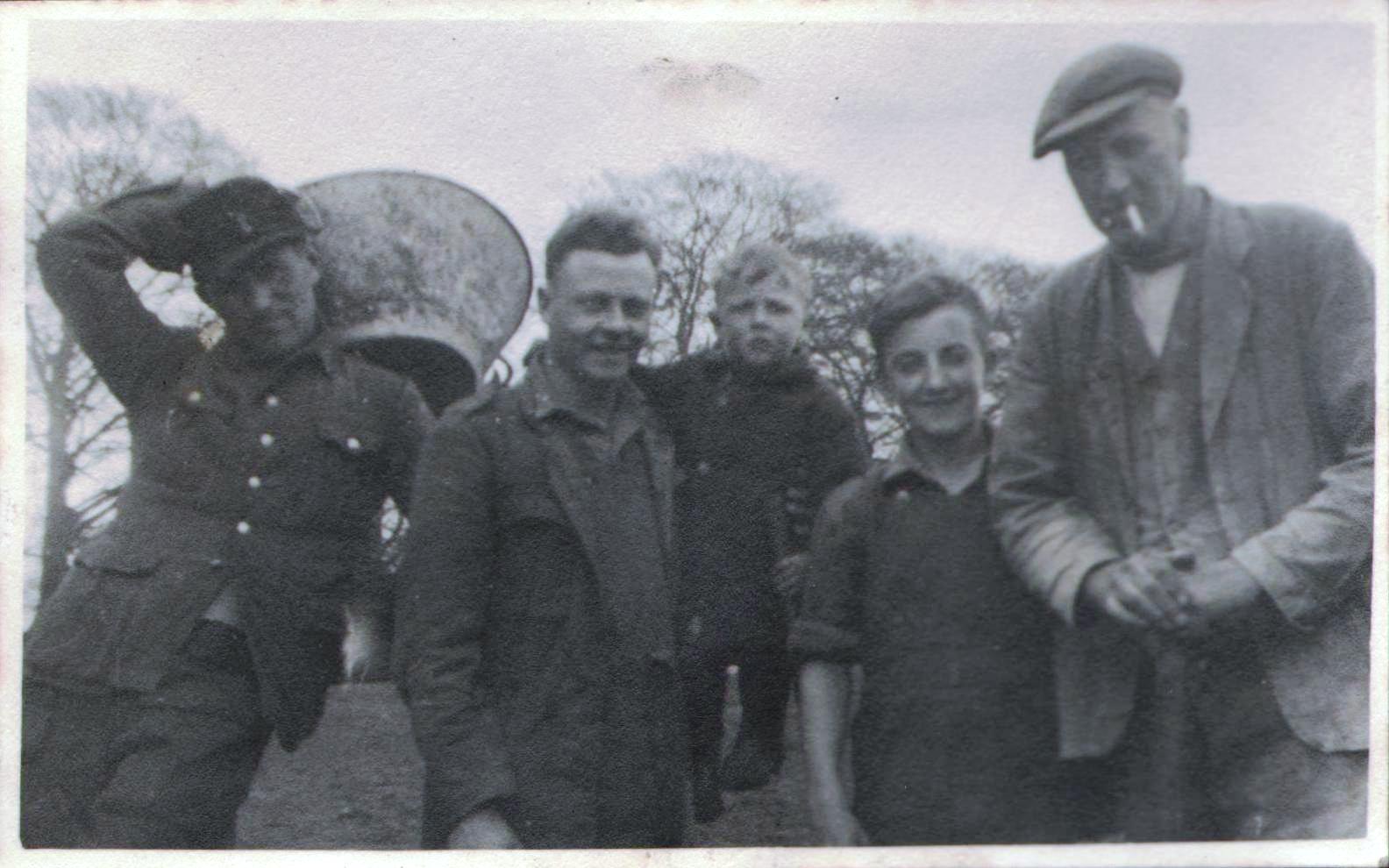Prisoners of War at Lotherton Park Farm
in WWII
Back to the Main Historical Society page
Back to the Barwicker Contents page
Prisoners of War
at Lotherton Park Farm
in WWII
Barwicker No. 119
September 2015
Mr Mills of Lotherton Park Farm had eight Italians working for him
during WWII. These men who had been classed as Prisoners of War
had each made a declaration that they would help our country in all
ways until Germany was defeated. They were thus known as 'Co-
operators' and the term POW was discarded in their case. The men had
virtually complete freedom of the surrounding area except that they
were not allowed to enter a public house. Mr Mills started to house the
men during late September 1944 but from the contents of the
documents it would appear that they had been working for him for
some time and had been housed elsewhere.
The authorities paid them 4 shillings a week and 34 cigarettes,
although if they worked hard Mr Mills would supplement their
cigarette allowance where possible. He seemed to have a good working
relationship with the men.
One of the men cooked for them on an ordinary kitchen range in an
outbuilding. This range was correctly fixed and the room was lit by a
portable paraffin lamp which stood on the top of the range. They slept
in another outbuilding on the upper floor which was entered using a
ladder from the yard and that was also lit by a stable paraffin lamp
which hung using an S hook on a 2ft chain. Fire insurance regulations
stated that this paraffin lamp had to be installed in a fixed position not
in proximity 10 woodwork or other combustible material. This lamp
was usually lit in another building and carried to their sleeping quarters
when they were ready for bed. Once the lamp had been extinguished it
was not to be re-lit during the night. A torch was provided if a light
was required any time before the morning, When the lamp required
trimming and filling Mr Mills would do the job himself.
Smoking was restricted to a specific building and the men never
deviated from the instructions they were given. The room where
smoking was allowed had a concrete floor and only contained two
wooden benches and a wooden table.
Mr Mills was happy to continue with this method as he felt that if the
men were ordered not to smoke anywhere on the farm the present friendly
relations between them all would deteriorate. By restricting
smoking to one particular place it meant that really dangerous places
such as the farm yard or stack yard and other barns where hay. was
stored were safe from a 'tab' end being inadvertently discarded prior to
being fully extinguished which could cause a tremendous fire hazard.
In order to convey the strict instructions re the no smoking rules a
request for an interpreter had been issued and in late September 1944
the local Commandant had not responded to such. However a letter
from presumably the Royal Exchange Insurance Company (no
Company heading on letter dated 22 September 1944) stated that 'the
danger from this practice (i.e. smoking around a farm) is so great that
it cannot be over emphasised. .
NB Barwicker No. 33 contains an article by Franz Kamp entitled "A
P.O.W's life in Scholes."
|
| Some of the Italian POW's at Lotherton Park Farm in WWII |
PAULlNE ROBSON
Sources:
Copy of letter dated 16th September 1944 from Mr Curteis (Estate Manager at
Lotherton) to Royal Exchange Insurance Company.
Notes re, Italian Workers from a W Kershaw dated 17 October 1944.
Back to the top
Back to the Main Historical Society page
Back to the Barwicker Contents page

